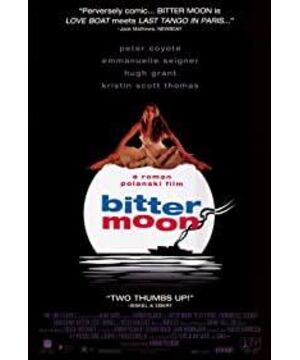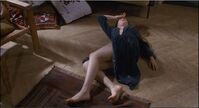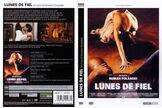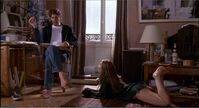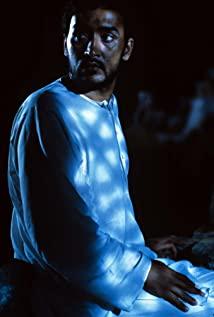"Love should end at its peak, not waiting for that inevitable disappearance to come."
I don't know why, I always feel that "If life is just like the first time" can highly summarize all the feelings of love at first sight, vigorous and sudden death. Hearing the familiar English sound made me want to cry, Uncle Hugh was still a piece of fresh meat at that time. The time applicability of literary films is very wide, and the films of 1992 are still not out of date.
The film adopts a two-line structure, bounded by Oscar's narrative, and is divided into three parts: Nigel and his wife meet Mimi, Oscar tells how they met and fell in love; Nigel is attracted to Mimi, Oscar tells him and Mimi The relationship goes into stagnation; Nigel longs for Mimi, and Oscar recounts Mimi's revenge for returning. At the end, the two lines meet, and the story is sublimated at the New Year's party. Just as "love should be eternal" mentioned many times in it, freedom should always be eternal.
"My witch is wearing white sneakers." In the first part, there are a lot of long shots and overlapping transitions to create a romantic atmosphere, coupled with the slow and beautiful soundtrack and the soft light and the emotions of the characters, Oscar and Mimi's love affair seems to be Extraordinarily sweet. The dubbing of the kiss scene is gentle, and the camera is close-up in part. The empty scene transitions, with a more euphemistic and subtle way to express the perfect scene of raging passion and peaceful time. The sound and picture are parallel to enhance the emotional appeal. This part is like Hu Lancheng's promise to Eileen Chang that "the years will be quiet and the world will be stable." If so, how beautiful. However, the good life is always used to be broken, and the beauty in the initial stage also paved the way for the later plot twist.
In the second part, the scene differences in the characterization of the characters have become significantly larger, and the audience sees more of the events that happened between the two in the entire room, using more direct visual effects to imply the disappearance of Oscar's attachment to Mimi. From SM, to a dinner with jealous friends, to Mimi's maid-like humbleness, to the final flight full of deceit and betrayal that subverts everything, Mimi's love is typical of what Eileen Chang said, "When I am with you When we were together, I felt that I was very low and very low, as low as the dust, but I just like to bloom from the dust." The light and shadow changes in this part are far less soft than the first part, and the appearance of multiple strong lights expresses the side effect. Emotional conflict between characters. The appearance of the blue billboards reinforces the sense of right and wrong, and highlights the ever-changing emotions. Love should never lose its freedom, and excessive control of emotions and psychological burden will only accelerate the exhaustion of its original intention. The same goes for Oscar's scum, but in my opinion, the final reason for its twisted love ending is Mimi's obsession. The flowers in the dust are beautiful but also sad.
In the third part, the film combines more shots of Nigel and his wife, coupled with the continuation of Oscar's memories, the proportion of "double lines" is equal. Editing brings the narrated story back to the present moment and builds on the ring structure. It's not hard to see here the film's appreciation for Fiona's freedom for her husband. The concept of "freedom", which seems to be at odds with faithful love, is again emphasized. The changes after the New Year's party have raised "freedom" to a new height-freedom, not loyalty, is the most reliable backing for love.
Combining the narratives of the three parts, "Bitter Moon" expresses the suffering of love that is as cloudy as the moon. No freedom, no love. Maybe we should all be glad that we turned away and left; thanks to those lovely people who left us in time and gave us new freedom and love.
WYN
View more about Bitter Moon reviews


